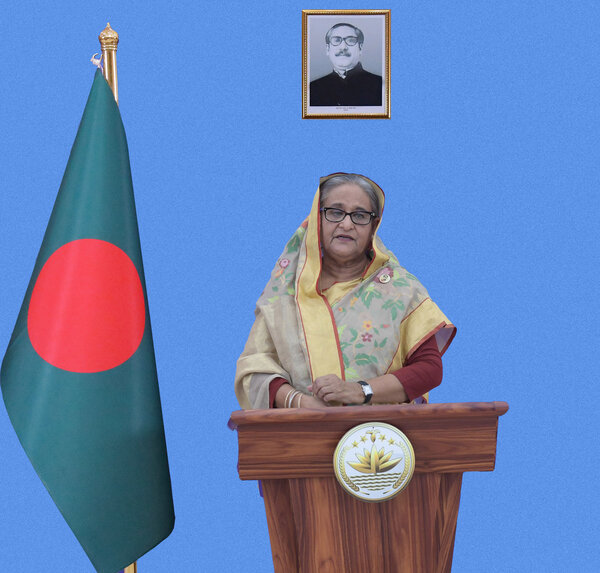Prime Minister Sheikh Hasina virtually addressed the ' Event of Leaders' network on "Delivering the Un Common Agenda: Action to Achieve Equality and Inclusion" at the sidelone of the 76th UNGA, New York, USA.

Bismillahir Rahmanir Rahim
Excellencies,
Ladies and Gentlemen,
Assalamu Alaikum and a very Good Morning to you all.
I thank the Presidents of Costa Rica, Sierra Leone, Spain, and the Prime Minister of Sweden for inviting me to this high-level event. I appreciate its focus on the UN Common Agenda to achieve equality and inclusion.
The Secretary General’s Report on “Our Common Agenda” provides an alarming picture of the growing inequality across the world.
The COVID-19 pandemic has hit the poorest and the most vulnerable countries the hardest. Our decades of development gains on reducing poverty, inequality and exclusion are rapidly sliding back.
Ladies and Gentlemen,
The Constitution of Bangladesh ensures “Equality of opportunity to all citizens”. Our Father of the Nation, Bangabandhu Sheikh Mujibur Rahman, in his maiden speech at the UNGA in 1974 said, “there is an international responsibility…..to ensuring everyone the right to a standard of living adequate for the health and well-being of himself and his family”.
This vision is more relevant now than ever before.
In keeping with this very spirit, we have adopted a ‘whole society’ approach in realizing the SDGs and ensuring a COVID recovery that will “leave no one behind”.
We have placed the most vulnerable section of our society at the centre of our efforts. And that include, women, the ultra-poor, ethnic minorities, people with disabilities and other vulnerable groups.
No single country can tackle this crisis alone. We need bold and concrete actions at global level. We need multilateral cooperation to fulfil our promises of UN75 Declaration to build a more equal and inclusive world.
Let me highlight a few specific points in this regard:
First, the most urgent call of the hour is to eliminate “vaccines divides” between the rich and the poor.
Second, we need a new paradigm that will address inequality in a holistic manner. It has deep relations with the SDGs, such as poverty, hunger, gender equality, health, education and job creation.
Third, we must address the special financing needs of the most vulnerable countries, which include the LDCs, climate vulnerable countries, etc.
Fourth, it is imperative to address the vulnerabilities of migrants and people on the move.
Fifth, we need to bridge the stark “digital divides” to ensure equal opportunities for all in this evolving digital age.
Finally, we must create more opportunities for women and girls to act as a real “change makers” in our societies.
I thank you all.









